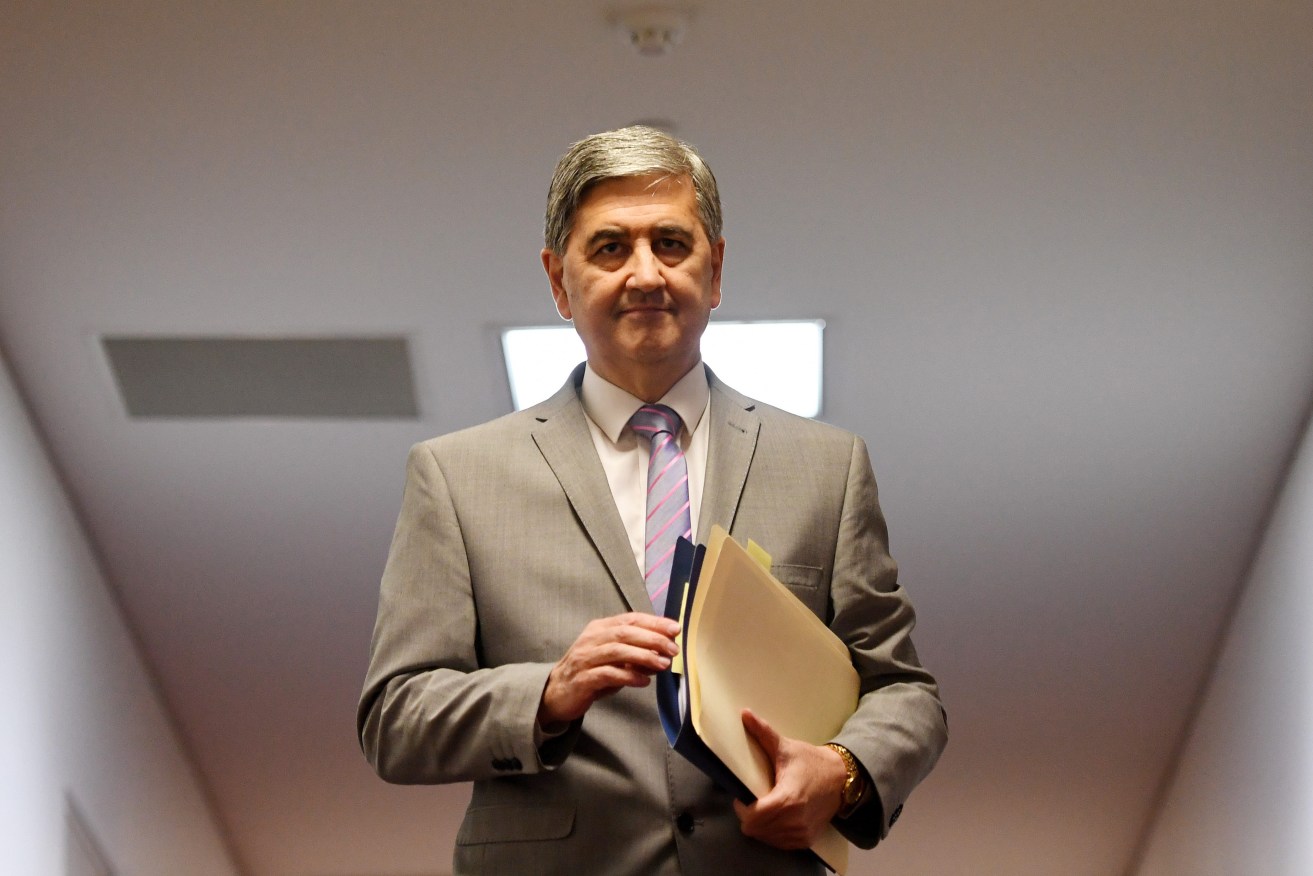Surging emergency services spend puts Libs’ ESL pledge under pressure
The total bill for the state’s emergency services is set to rise sharply this year, putting a question mark over the household impact of the Marshall Government’s $90 million Emergency Services Levy remission.

Rob Lucas remains committed to cutting $90 million a year from ESL bills - but will it still equate to a $150 saving per average household? Photo: Tracey Nearmy / AAP
The Liberals have long promised to restore the ESL remission scrapped by former Treasurer Tom Koutsantonis in his 2014 budget, which initially saw around $90 million returned to the budget bottom line but meant the average household paid an extra $150 a year on their bill.
Treasurer Rob Lucas is set to reveal the full extent of the savings this week, with his department’s emergency services levy report to be handed to parliament’s Government-controlled Economic and Finance Committee on Friday for consideration.
Lucas told InDaily he was committed to meeting the Government’s election pledge of cutting total ESL bills by $90 million by July 1, but was equivocal about whether that still equated to Steven Marshall’s promised “$150 off the average household ESL bill”.
“That’s what we’re aiming for,” he said.
“We’ll be announcing what we’ve got imminently… we’ll meet our commitment of $90 million [overall cut]. In relation to the $150 [average per household], our goal is to get as close to that as we can – we may well be a little bit over or under.
“We’re confident that we’ll be very close to the $150.”
Lucas revealed SA’s overall spend on emergency services will rise this year, after a marginal drop last year – which the Treasurer says was designed to herald in the March election.
“One of the challenges we’ve got, one of the problems, is the former government ran down the cash reserves in the last 12 months prior to the election to keep ESL increases as low as they could,” he said.
“So there was a very significant rundown in the cash reserves, which will be revealed in the report – and that adds to the challenge.”
He said a round of enterprise bargaining agreements signed off last year that went well in excess of a mooted 1.5 per cent cap would also hike up the overall emergency services spend.
“There are significant increases in expenditure for emergency services, one of which was the enterprise bargaining agreements done just before the election,” he said.
“So the amount of money spent on emergency services will obviously increase.”
The Government has committed to wear $90 million of that spend from its budget bottom line.
But while the original removal of the ESL remission in 2014 was worth around $150 to the average household, there have been successive increases in the overall emergency services spend in the years since, making it unclear just what reinstating the $90 million remission will mean to homeowners.
“The $90 million is the absolute number,” Lucas said.
“The not unreasonable question is what’s the impact on the average household… the answer to the question is we’re delivering the $90 million cut – the issue then is the impact of what that will be in the various categories.
“Our target will be to get as close as we can to $150 on the average household [bill] in the metro area.”
He said the Liberals had shifted their rhetoric during the campaign to suggest a 50 per cent cut to the average household bill, which – like the $150 saving – he also would not commit to delivering.
“We’ll have to be measured against both of those when we release the final recommendation,” he said.
“The bottom line is… it was the last government that hiked it up in the first place.”
The politicking over the ESL remissions has escalated as the Government prepares to reveal its long-mooted cuts to the Economic and Finance Committee, with Labor committee member and Shadow Treasurer Stephen Mullighan claiming Lucas has already missed his own deadline to provide the levy report for scrutiny.
Mullighan says the Treasurer’s office advised the committee the report would be received by last Friday, but was then delayed a further week.
With the report to be considered by the committee and tabled in parliament within 21 days, Mullighan claims the timeframe is “extremely tight” to consider the proposed changes.
“My grievance about it is I moved a motion at the last [committee] meeting seeking specific information about what’s been proposed… about various classes of land owners and how much they’ll be estimated to pay, and the Liberal members of the committee voted en masse to block that information request,” he said.
But committee chair, Liberal MP Sam Duluk, dismissed the claim, saying: “If he wants to ask questions, the appropriate time is to ask when the committee meets [to consider the report].”
“The member for Lee would know, as a former staff member to a former Treasurer [Kevin Foley], the process that Treasury undertakes for the submission and determination of ESL, and the workings of the Economic and Finance Committee,” Duluk said.
“I’m surprised by his lack of knowledge.”
Lucas denied missing any committee deadline, saying: “The only deadline is July 1.”
“We’ll meet the deadline that we have to meet in terms of having the ESL [remission] in place,” he said.
“Our promise was to implement a $90 million cut in ESL bills by July 1.
“Only Stephen Mullighan is worried about the processes of the committee… the people of SA will be more concerned about a $90 million cut on July 1.”




